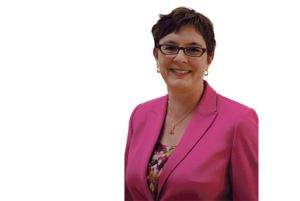Opinion
Living in an expat world: Enjoying motherhood in Denmark
Tiny Maerschalk
This article is more than 9 years old.

A great country to be a mother
On 23 January 2016 we welcomed a little baby girl into the world. Everything went as planned the old-fashioned way in a hospital bed – no bath tub, no home birth or anything like that, which seems to be popular in Denmark these days. Fortunately, our baby was perfectly healthy – and very adorable, if I may say – so we were sent home shortly after, which is the norm here when giving birth to your second child.
Great place for mothers
So we went home and introduced our baby girl to the ‘nest’ we had prepared. Generally, parental leave policies in Denmark give you time to make the transition to parenthood and spend time with your new arrival. The policies also make sure that you have a job to return to.
According to the law, parents can receive a total of 52 weeks of paid leave per child from the government (not all weeks are fully paid, though). This and the hospital system are two of the main reasons why Denmark is often considered to be a great country to be a mother.
And then there is the often mentioned issue: many Danes feel perfectly comfortable leaving their babies in a pram outside unsupervised, which is considered weird by many international mothers, but a great thing to be able to do without worrying too much.
Daddy’s home!
Actually, my husband and I got to enjoy a bit more time together than usual. He had four weeks of paternity leave, which is two weeks longer than the standard for fathers in Denmark.
He works for a company where 95 percent of the staff are male, so they figured they might as well give them some extra paternity leave.
Time flies, and now I have sent my husband back to work and enjoy my own routines.
An international community
I have also joined a mothers’ group, which is highly recommendable. The group is set up by the municipality and is usually put together with consideration to geography, age and first time/second time motherhood.
My home town, Beder, is situated on the outskirts of Aarhus and is definitely not a melting pot of nationalities by any means, but there is only one Dane in the group while the others are from more exotic places – so I get to stay in touch with an international environment even when on maternity leave. Needless to say, I’m really enjoying motherhood!

About
Tiny Maerschalk
Belgium’s Tiny Maerschalk, who has worked for the International Community networking platform since its foundation in 2008, knows how it feels to settle in a new country. Dedicated to improving conditions for new arrivals, here she shares her insights about the business issues that mean the most to internationals in Denmark.










































